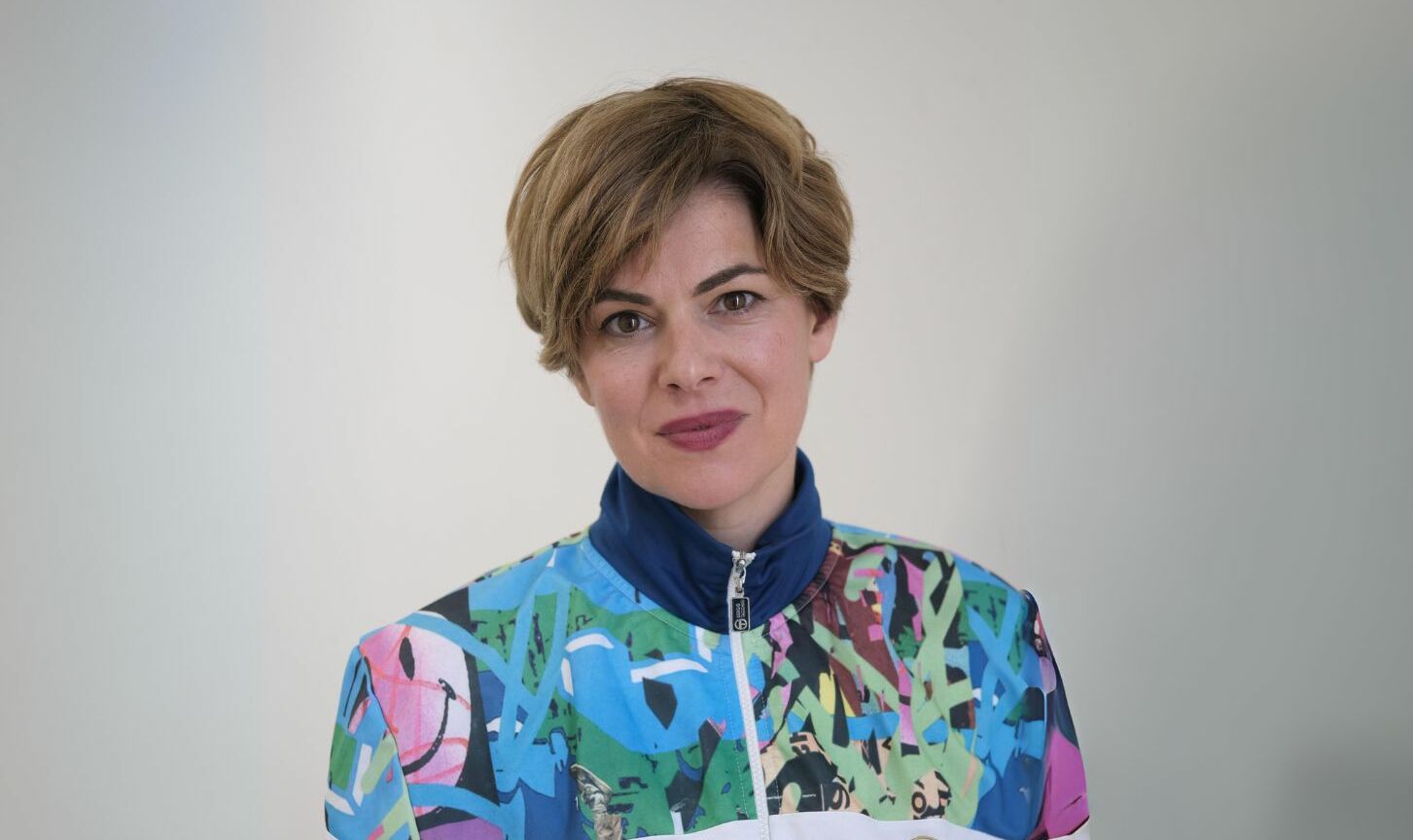‘The arts are now full of ideological landmines’
Rosie Kay on how the art world turned against free thinking.

Art used to be about pushing boundaries. Artists broke taboos, spoke out about controversial issues and were at the forefront of movements for liberty and progress. Today, things could hardly be more different. Artists are all expected to hold the same beliefs, whether that be on Brexit, identity politics or climate change. Arts organisations enforce this groupthink by controlling access to funding and to jobs. Spare a few brave voices, the creative industries today appear more like propaganda mills.
Rosie Kay – choreographer and co-founder of Freedom in the Arts – has first-hand experience of all this. In 2021, she was targeted by a vicious smear campaign for her gender-critical views, and was ultimately ousted from her own dance company. She returned to The Brendan O’Neill Show last week to discuss this toxic new culture in the arts and how she is fighting back against it. What follows is an edited extract from their conversation. Listen to the full episode here.
Brendan O’Neill: How bad have things become in the art world? Is it becoming increasingly difficult to express unorthodox views?
Rosie Kay: It’s become worse than I ever anticipated. When I ended up at the very spiky end of cancel culture a few years ago, I really did have a sense of hope. I thought that by speaking out early, we could maybe save the arts. I knew so many good, decent, passionate people in the art world, and I thought that people wouldn’t stand for this kind of censorship. Unfortunately, it’s still going strong.
There are a couple of explanations as to why that is. The first is the vulnerability of artists themselves in a material sense. There’s very little employment law and a lot of poor contracting, so most of the power and money sit within the bigger organisations. Artists’ jobs are very fragile. And now you can go out of fashion or be cancelled very quickly, which adds another layer of vulnerability.
The second reason is that the funders have been pushing identitarian criteria through the system for quite a long time. We have a unique, hybrid model for arts funding in the UK. It’s neither based on independent philanthropists, nor is it a fully state-funded sector. Instead, we’ve got a mix of the two. And over the past 13 years, a ‘fuck the Tories’ mentality has grown up among the funders. This ideology grew, at first in opposition to right-wing politics, particularly austerity, but it has now morphed into something that is obsessed with DEI. Even if artists think this ideology is nonsense, they aren’t daft. They are going to follow where the funding is in order to make their work and earn a living.
This would be fine if, say, gender-critical artists were also getting support and if there was a debate going on. But the money has gone very much in one direction.
The art world definitely has a groupthink mentality. It feels very much like a bubble, regurgitating the same ideas with the same people. That makes artists terrified of being ostracised by the group for having the wrong opinions.
In the long-term, the arts will become a very destructive place. It’s going to continue alienating independent thinkers and driving away new ideas. That will only alienate audiences, too.
O’Neill: How do you explain the woke takeover of the arts?
Kay: When it comes to things like trans ideology, we need to step back and ask one simple question: is this art? And does this have any relevance in an art gallery? Is this pushing forward visual arts, theatre, dance, aesthetic theory? No, it’s not. So what is it doing here?
Gender, in particular, is one of those hot-button topics. But, more broadly, the arts are full of ideological landmines. Everyone is expected to have the same fashionable beliefs, such as transwomen are women, transmen are men, capitalism is bad, ‘Free Palestine’, and so on. Affirmative action is the norm. You’re not supposed to be in favour of meritocracy or hierarchies. You have to be anti-excellence, anti-skill and anti-expertise. Everything has got to be ‘accessible’. It’s got to have ‘community engagement’ at its core.
The big issue that’s also coming through in the arts right now is climate change. The Arts Council is already involved a little bit in that one – calling it ‘environmental responsibility’ – and has been for a few years. Artists are being told that we can’t fly anywhere anymore, which really harms international cooperation and touring. And now green ideology is being forced into the work itself. We’re told we need to start putting messages about climate change into our work – and those messages are being written into the missions of arts organisations themselves.
I recently came across one arts organisation that’s entirely rewriting its mission. Why? Because there’s a new round of funding and everyone has been told that, in order to succeed, climate change has to be their No1 priority. But how are we going to tour internationally? By rowboat?
These organisations need to be aware of the contradictions in their mission. But there just seems to be too much blindness and hypocrisy. I’m worried about how this is going to impact both art and artists. When you push creative people to put a particular message in their work, you end up with propaganda. And propaganda, by definition, isn’t art.
Rosie Kay was talking to Brendan O’Neill on The Brendan O’Neill Show. Listen to the full conversation here:
Picture by: Brian Slater.
To enquire about republishing spiked’s content, a right to reply or to request a correction, please contact the managing editor, Viv Regan.








Comments
Want to join the conversation?
Only spiked supporters and patrons, who donate regularly to us, can comment on our articles.